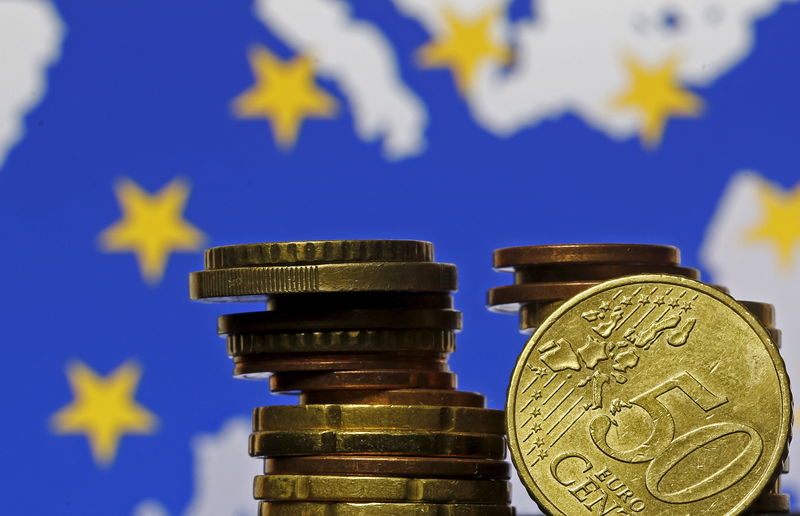Investing.com - The euro remained slightly lower against the dollar on Tuesday after a report showing that German economic sentiment deteriorated this month, knocked by recent turmoil in global financial markets.
EUR/USD was last at 1.0869, off 0.21% for the day from around 1.0873 earlier.
The ZEW institute said its index of German economic sentiment fell from 16.1 in December to 10.2 in January, as slowing growth in China and other major world economies dimmed the outlook for the euro area’s largest economy. This was still higher than analysts forecast for a reading of 8.2.
The ZEW index of current conditions rose to 59.7 from 55.0 in December, the highest level since September.
A separate report confirmed that the annual rate of inflation in the euro area came in at 0.2% in December, in line with forecasts.
On a month-over-month basis consumer prices were flat.
The lackluster inflation data added to pressure on the European Central Bank to step up measures to bolster price growth in the region. The ECB targets annual inflation of close to, but just below 2%.
The reports came as the International Monetary Fund cut its global growth forecast to 3.4% for this year and 3.6% in 2017.
The IMF said that there were clear deflationary pressures in the euro zone and added that it still expected further easing from the ECB.
The euro was higher against the safe haven yen, with EUR/JPY rising 0.36% to 128.26.
The Japanese currency eased after data overnight showing that a slowdown in China’s fourth-quarter growth matched expectations.
The annual rate of growth in China’s economy slowed to 6.8% in the three months to December from 6.9% in the previous quarter, in line with forecasts.
Full-year growth was 6.9%, slightly below the government’s target of 7% and the slowest rate of growth in a quarter century.
Other reports showed that Chinese industrial output, retail sales and fixed asset investment all ticked lower in December, indicating that the world’s second-largest economy is continuing to lose momentum.
Elsewhere, the single currency was weaker against the pound, with EUR/GBP down 0.65% to 0.7598.
Sterling was boosted by data showing that the annual rate of U.K. inflation rose 0.2% in December ahead of forecasts of 0.1% and the highest since January 2015.
